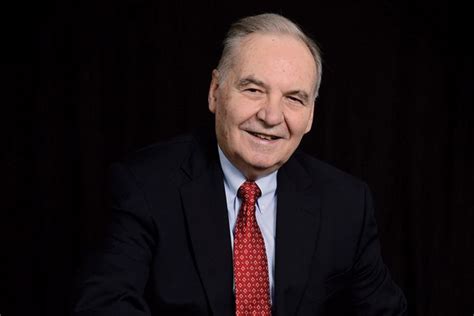A Quote by Cass Sunstein
The fear of loss is an engine of horrors, but also a source of the greatest forms of heroism. There's not a lot of art that puts that in bold letters. It's psychologically very interesting and acute, I think. That's not the central reading, I think, of the New Testament.
Related Quotes
Daredevil was known as 'The Man Without Fear,' and I just thought, 'Well, I don't think that's very interesting.' I don't think it's very interesting to watch someone who's incapable of feeling fear. It also removes from the palate my favorite character attribute, which is courage. If you're not afraid, you can't exercise courage.
I think training your instinct comes from writing and reading. There's no big secret. And reading slush helps, as well; I'd recommend everyone edit a literary magazine at some point. It's time-consuming, but there's a lot to learn from other writers who are also learning. The patterns (twelve stories about whales in this batch?) are also interesting.
I think as much as the city is changing us, our experience inside the city also changes. I think, a city like Cairo - and it's interesting because yesterday, a friend of mine told me the same this thing about New York - is a city that you can't control. It's very bold and very aggressive, and it will constantly resist any attempt at control. But even though you can't control it, you can find your path within the city. You can come to a better understanding of your relationship with it.
God lends us a little of His reasoning powers and that is how we think: He puts a little of His love into us and that is how we love one another. When you teach a child writing, you hold its hand while it forms the letters: that is, it forms the letters because you are forming them. We love and reason because God loves and reasons and holds our hand while we do it.
I think subjectivity plays into everything. It's unavoidable; you couldn't avoid it if you tried. I think, potentially, a lot more commercial movies, it seems to be that the people making the films are trying to elicit the same reaction. I think a lot of the most interesting work in art and in films are often kind of polarized opinions and affect people in very different ways, which may be less successful commercially, but they elicit a dialogue that's quite interesting.
I think art world will have consolidated, I think it will slow down a little bit. I think it will be less white and Western, which it is still at the moment. There will be more female artists in the mix. I think we'll see art forms explored through different media - the Internet, television, books, even. We'll see art produced in forms and media that we haven't seen yet.
I do not mean to say that such institutions act unilaterally on psychic life, or that they determine certain psychic outcomes. Rather, they exploit forms of fear and insecurity that are there for any population - no political organisation of life could ever fully do away with fear and insecurity; but some work to intensify, accelerate, and make more acute forms of fear, and to provide ideological focus for such intensified fears, at which point critical thinking has a fierce rival. The critical analysis that shows precisely how those forms of fear are promulgated, and for what purpose.




































